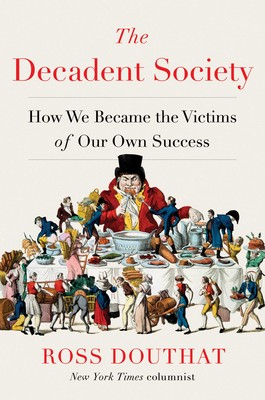Lindybeige
Published 4 Mar 2018Two books I have read recently. When is a book a memoir and when is it a novel? WW2 from two different perspectives.
Support me on Patreon: https://www.patreon.com/Lindybeige
The books:
From the City, From the Plough by Alexander Baron (Bernstein)
The Last Panther by Wolfgang Faust (Chris Ziedler)Buy the music – the music played at the end of my videos is now available here: https://lindybeige.bandcamp.com/track…
Lindybeige: a channel of archaeology, ancient and medieval warfare, rants, swing dance, travelogues, evolution, and whatever else occurs to me to make.
▼ Follow me…
Twitter: https://twitter.com/Lindybeige I may have some drivel to contribute to the Twittersphere, plus you get notice of uploads.
website: http://www.LloydianAspects.co.uk
June 20, 2020
Two books on WW2 – which is the memoir and which the novel?
QotD: Morality and the government
If an action is immoral for me and you, it is also immoral for others, including those who constitute the government. Election to public office is not a licence to lie, defraud, extort, rob, kidnap, or murder. Those who believe that government officials, employees, and contractors may morally do what other individuals may not do are morally bankrupt. The government has the power to act immorally — and does so as its standard operating procedure — but power and just right are completely different things. To affirm that might makes right in a moral sense is to affirm that one has simply chosen to abandon all pretense of taking morality seriously.
Gaze upon the members of Congress, the president and his lieutenants, the justices of the Supreme Court, and the leading figures of the government bureaucracies. As I do so, I cannot help but wonder: Who are these people? I am not personally acquainted with a single one of them; they are complete strangers to me. I have not contracted with them for the provision of any services, nor have I agreed to support them financially. Why then do these strangers presume to dictate to me what I must do and not do, and to threaten me with violence if I do not obey? They might as well be alien invaders from outer space.
Robert Higgs, “A Straightforward View of Morality and the Government”, The Beacon, 2018-03-06.
June 19, 2020
What Actually Is Blitzkrieg? – WW2 Special
World War Two
Published 18 Jun 2020When the Nazi war machines tears through Poland, France, and the Soviet Union, people will call it Blitzkrieg. But what is Blitzkrieg and is it anything that unique?
Join us on Patreon: https://www.patreon.com/TimeGhostHistory
Or join The TimeGhost Army directly at: https://timeghost.tvFollow WW2 day by day on Instagram @World_war_two_realtime https://www.instagram.com/world_war_two_realtime
Between 2 Wars: https://www.youtube.com/playlist?list…
Source list: http://bit.ly/WW2sourcesHosted by: Indy Neidell
Written by: Francis van Berkel
Director: Astrid Deinhard
Producers: Astrid Deinhard and Spartacus Olsson
Executive Producers: Astrid Deinhard, Indy Neidell, Spartacus Olsson, Bodo Rittenauer
Creative Producer: Joram Appel
Post-Production Director: Wieke Kapteijns
Research by: Adam Adkins
Edited by: Mikołaj Cackowski
Sound design: Marek Kamiński
Map animations: Eastory (https://www.youtube.com/c/eastory)Colorizations by:
Jaris Almazani (Artistic Man) – https://instagram.com/artistic.man?ig… (edited)
Carlos Ortega Pereira, BlauColorizations – https://www.instagram.com/blaucoloriz…
Julius Jääskeläinen – https://www.facebook.com/JJcolorization/
Dememorabilia – https://www.instagram.com/dememorabilia/
Musvage https://commons.wikimedia.org/wiki/Fi…
Klimbim https://www.flickr.com/photos/2215569…Sources:
Portrait of Basil Liddell-Hart, courtesy National Portrait Gallery
Portrait of Douglas McGarel Hogg, courtesy National Portrait Gallery
IWM H 20697, Q 6337, D 1966
Bundesarchiv
from the Noun Project: Target by RITASYA, documents by DinosoftLab, Tank by mbok sumirna, Armored Car by Martin, Plane by Graphic Enginer, transceiver by Eucalyp
Breaking A Wall Down (With A Hammer) by scampsie https://freesound.org/people/scampsie…Soundtracks from the Epidemic Sound:
Johannes Bornlof – “Last Man Standing 3”
Reynard Seidel – “Deflection”
Fabien Tell – “Last Point of Safe Return”
Hakan Eriksson – “Epic Adventure Theme 4”
Johannes Bornlof – “The Inspector 4”
Johannes Bornlof – “Death And Glory”
Bonnie Grace – “The Dominion”
Bonnie Grace – “Imperious”Archive by Screenocean/Reuters https://www.screenocean.com.
A TimeGhost chronological documentary produced by OnLion Entertainment GmbH.
National Defence Headquarters needs to go on a crash diet
Ted Campbell knows how Canada’s NDHQ got into the state it is in, and has some suggestions for getting it out of its critical state of administrative morbid obesity:

Major General George R. Pearkes Building in Ottawa, home of National Defence Headquarters on Colonel By Drive.
Photo by DXR via Wikimedia Commons.
National Defence Headquarters is a HUGE place with diverse functions. First: it is, simultaneously, the management centre of the Department of National Defence, which is a very large (and complex) department of government that includes the Canadian Armed Forces (but the CAF is just one of DND’s “arms”), and it is the national command centre for the Canadian Armed Forces. Second: it is one of the biggest budget departments in Canada. Defence spending supports many hundreds of thousands of jobs in the military, in the civil service and all across the spectrum of Canadian industry from the highest of high-tech enterprises through to janitorial services. It is never surprising when things fall through the cracks in any large, complex organization, is it?
But there are two other problems:
As defence spending has declined, year-after-year, always in terms of GDP and often in terms of its share of the public accounts and sometimes in real, dollar terms, too, the headquarters, especially the military’s command and control (C²) superstructure, has grown. A bit of growth is not surprising when one must “do more with less” as I well remember being told during the rounds of budget and staff cuts in the 1990s. Although to their credit, defence ministers in the Chrétien-Martin era imposed a series of staff cuts on the HQs in Ottawa, there was a bit of growth in the (largely civil service) policy and financial management areas. But in the Harper era that all changed. Budget pursestrings were loosened by governments after 2001 and, under e.g. Conservative Defence Minister Gordon O’Connor the Canadian Forces began to receive some much needed new equipment including the big CC-177 Globemaster III transport planes, new CH-147F Chinook transport helicopters and Leopard tanks ~ all procured on sole-source contracts, over the objections of many. But then O’Connor was replaced by Peter MacKay and, it appeared to me, the generals and admirals took over and the HQ went from lean to overweight and then to downright fat. Then, in the Trudeau era, the HQ went from simply being fat to being morbidly obese. There are, now, hundreds of admirals and generals, managing a military force that numbers in the (too few) thousands. Even serving flag and general officers have told me that cutting the highest ranks by ⅓ would do no harm and some retired officers and civil servants (with intimate knowledge of the inner workings of the HQ at the highest levels) say that a 50% cut would be healthy. The simple fact is that the Canadian Forces have too many very smart, very able senior officers with too little real work to do. They, not surprisingly, fill the time available with “work” of their own devising which, often, involves creating new and more complex command structures which require more and more general officers. The process seems unconstrained from the top.
Why? What happened?
Well, it started with the very best of intentions. I recall being told by one very, very fine general that we, the Canadian Forces, must, above all else, be “interoperable” with our American allies and that, he explained, meant adapting to their command and control system, poor as he thought it was. He said, and he meant, adapting, not adopting. But he retired and a new generation of officers entered the most senior ranks and some of them seemed, to me, to be more interested in adopting than in just adapting to. We seemed, in the 2000s, to be seized by a giant case of military penis envy and we seemed to want to have a local version of whatever the Americans had. The result was a proliferation of new command and control organizations, all put in place as the combat elements were actually shrinking. The end result was an unconscionable GOFO [General Officer/Flag Officer] to combat sailor and solder ratio and a bloated and, in my opinion, weak and inefficient command and control superstructure.
“Hill 3234” – The Soviet-Afghan War – Sabaton History 072 [Official]
Sabaton History
Published 18 Jun 2020It happened during the last stage of the Soviet-Afghan War.
Already withdrawing its forces, Soviet High Command needed to display its might one last time by recapturing the vital Satukandav Pass. But to achieve that goal, the commanding heights surrounding the pass had to be held against continuous Mujahideen attacks.
In the Battle for Hill 3234, an outnumbered force of Soviet paratroopers held their own against relentless attacks from the Afghan rebels.
Support Sabaton History on Patreon: https://www.patreon.com/sabatonhistory
Listen to “Hill 3234” on the album The Last Stand here:
CD: http://bit.ly/TheLastStandStore
Spotify: http://bit.ly/TheLastStandSpotify
Apple Music: http://bit.ly/TheLastStandItunes
iTunes: http://bit.ly/TheLastStandItunes
Amazon: http://bit.ly/TheLastStandAmz
Google Play: http://bit.ly/TheLastStandGooglePlayWatch the Official Lyric Video of “Hill 3234” here:
https://www.youtube.com/watch?v=K1Xkp…Listen to Sabaton on Spotify: http://smarturl.it/SabatonSpotify
Official Sabaton Merchandise Shop: http://bit.ly/SabatonOfficialShopHosted by: Indy Neidell
Written by: Markus Linke and Indy Neidell
Directed by: Astrid Deinhard and Wieke Kapteijns
Produced by: Pär Sundström, Astrid Deinhard and Spartacus Olsson
Creative Producer: Joram Appel
Community Manager: Maria Kyhle
Executive Producers: Pär Sundström, Joakim Broden, Tomas Sunmo, Indy Neidell, Astrid Deinhard, and Spartacus Olsson
Post-Production Director: Wieke Kapteijns
Edited by: Iryna Dulka
Sound Editing by: Marek Kaminski
Maps by: Eastory – https://www.youtube.com/c/eastoryArchive by: Reuters/Screenocean https://www.screenocean.com
Music by Sabaton.Sources:
– Abramov Andrey, ALDOR46, Fdutil, P.Fisxo; from Wikimedia
– E.Kuvakin
– Erwin Franzen
– Archive of S.V. Rozhkova
– Photos of 350th airborne regiment, courtesy of the 5th airborne company trooper Sergey Novikov
– Archive of the 345th airborne parachute regiment
– Library of Congress, Geography and Map Division.An OnLion Entertainment GmbH and Raging Beaver Publishing AB co-Production.
© Raging Beaver Publishing AB, 2019 – all rights reserved.
From the comments:
Sabaton History
1 day ago
They were only 39
They were told to hold the line…I’m sure most of you know the rest of those lyrics. And after watching this episode of Sabaton History, you also know the real historical events behind those words.
What some of you might not know though, is the story of the guitar solo in Hill 3234. As usual when Joakim had written the song, he sent it out to the rest of the band. Much to his surprise though, this time Thobbe Englund – lead guitarist at the time – sent a file back within the hour. Thobbe had just plugged his guitar in and hit play. He was literally listening to Hill 3234 for the first time when the solo spontaneously popped into his head, and he recorded it on the spot. And to make this solo even more special: it is that very first recording Thobbe made that ended up on the album!
Not one single re-take.
Talk about a blessing from the Muses…
The economy isn’t all huge corporations and government
Paul Sellers reminds us that the economy is far more than just the big names that get mentioned in the financial pages:
Independents in micro-businesses are few and far between and often hard to discover, despite the internet’s ever-increasing web of enterprises. The backbone of British industry is made up of small, independent people striving to retain a measure of individualism, independence and entrepreneurialism in their lives. Statistics from 2019 show that in Britain there were 5.82 million small businesses responsible for 99.3% of the total business output in the UK.
Small businesses here comprise those with 0-49 employees and digging deeper still into what might at first seem more irrelevant than relevant is that the niche that small businesses fill in the real world of enterprise. Over 76% of businesses are operated by one-man bands; single-person enterprises who operate alone comprise almost 4.5 million men and women. With an additional 1.15 million micro-business (1-9 employees) around 95% of businesses here operate on a strength of under just 10 people. So over 99% of small to medium business enterprises, that’s zero to 249 employees, but only 0.6% have a workforce of 50-249 employees. Less than 4% are small businesses with 10-49 staff members and get this, over 95% operate as micro-businesses with 0-9 employees. What does this tell you about businesses output? What it tells me is how little of this is newsworthy by the mass media manufacturing companies (Like BBC News and ITV, Sky and so on) who constantly tell us about how many this massive company or that massive company is laying off and how little this really affects our economy because the little guys still get out into their little micro-shops and make what cannot work work.
Anglo-Dutch Wars | 3 Minute History
Jabzy
Published 25 Apr 2015First, Second and Third Anglo-Dutch Wars. I left out the Fourth War because it really wasn’t connected to the previous 3.
Also – I hope you don’t mind I used ‘Netherlands’ throughout the video despite the fact the term didn’t come until much later.
QotD: We call it the Corded Ware culture, not the Battle Axe culture to make it less interesting to boys
India played a large role in the development of European conceptions of race. In 1786 British judge William Jones delivered a lecture in Calcutta suggesting that Sanskrit, Greek, and Latin were all descended from the same lost language, a ghost tongue now called Proto-Indo-European.
Jones went on to hypothesize that an ancient invasion of Dravidian-speaking India by Proto-Indo-European-speaking Aryans from Iran could help explain the curious distribution of language, skin color, and caste within the Hindu world today.
Jones’ ideas had unfortunate influence. Reich writes:
To the Nazis and others, the distribution of the Indo-European language family, linking Europe to India … spoke of an ancient conquest moving out of an ancestral homeland, displacing and subjugating the peoples of the conquered territories, an event they wished to emulate.
Hitler thus culturally appropriated the Hindu swastika.
Since 1945, the notion of Aryan invaders has been unsurprisingly unpopular.
In Europe, anthropologists have promoted the “pots not people” theory to argue that trade and changes in fashion must explain why Corded Ware pots suddenly showed up all over Europe about 4,900 years ago. (So did battle axes; indeed, early scientists called this the Battle Axe Culture. But that sounded too awesome. Hence, more recent academics renamed it after its pottery style to make these brutal barbarians sound dweebier and thus less interesting to boys.)
In India, the notion of Hindu culture as a giant conspiracy by Aryan invaders to enshrine their descendants at the top of the social order for the rest of eternity perhaps struck a little too close to home.
Steve Sailer, “Reich’s Laboratory”, Taki’s Magazine, 2018-03-28.
June 18, 2020
Making a Japanese Cutting Gauge! // Low-cost tool making
Rex Krueger
Published 17 Jun 2020Make a precise and accurate Japanese cutting gauge from scraps and a little spring steel.
More video and exclusive content: http://www.patreon.com/rexkrueger
Get the plans! https://www.rexkrueger.com/store/japa...Make the Advanced Joiner’s Mallet: https://www.youtube.com/watch?v=sq3K6…
Other Videos You Might Enjoy:
Sandpaper Sharpening: https://youtu.be/gY6pOKQRw74
Joiner’s Mallet: https://youtu.be/sq3K6dLaquk
DIY Spokeshave: https://youtu.be/IPYvwAmoHosJapanese Tools: Their Tradition, Spirit and Use by Toshio Odate (affiliate): https://amzn.to/2UQmMOf
Tools in this Video (affiliate):
Hand-Screw Clamp: https://amzn.to/2UVO7P4
Hacksaw: https://amzn.to/2N4aLjE
Triangular File: https://amzn.to/2zFYjnp
Coping Saw: https://amzn.to/3fwOE1z
Coping Saw Blades: https://amzn.to/30PzoZDSign up for Fabrication First, my FREE newsletter: http://eepurl.com/gRhEVT
Wood Work for Humans Tool List (affiliate):
Stanley 12-404 Handplane: https://amzn.to/2TjW5mo
Honing Guide: https://amzn.to/2TaJEZM
Green buffing compound: https://amzn.to/2XuUBE2
Cheap metal/plastic hammer for plane adjusting: https://amzn.to/2XyE7Ln
Spade Bits: https://amzn.to/2U5kvML
Metal File: https://amzn.to/2CM985y (I don’t own this one, but it looks good and gets good reviews. DOESN’T NEED A HANDLE)
My favorite file handles: https://amzn.to/2TPNPpr
Block Plane Iron (if you can’t find a used one): https://amzn.to/2I6V1vh
Stanley Marking Knife: https://amzn.to/2Ewrxo3
Mini-Hacksaw: https://amzn.to/2QlJR85
Blue Kreg measuring jig: https://amzn.to/2QTnKYd
Blue Handled Marples Chisels: https://amzn.to/2tVJARY
Suizan Dozuki Handsaw: https://amzn.to/3abRyXB
Vaughan Ryoba Handsaw: https://amzn.to/2GS96M0
Glue Dispenser Bottle: https://amzn.to/30ltwoB
Orange F Clamps: https://amzn.to/2u3tp4X
Blue Painters Tape: https://amzn.to/35V1Bgo
Round-head Protractor: https://amzn.to/37fJ6oz
5 Minute Epoxy: https://amzn.to/37lTfjK
Dewalt Panel Saw: https://amzn.to/2HJqGmOPlans, t-shirts, and hoodies: http://www.rexkrueger.com/store
Get my woodturning book: http://www.rexkrueger.com/book
Follow me on Instagram: @rexkrueger
Black Death and the Failure of Pandemic Lockdowns – Pandemic History 03
TimeGhost History
Published 17 Jun 2020Starting in 1347 and for three centuries, the second plague pandemic provides ample time to learn how to deal with the recurring outbreaks. And yet, fears of ruining the economy, political expediency, and refusal to accept reality leaves those trying to implement protection measure to fight an uphill battle. The result is even worse economic consequences, and unfathomable death.
Join us on Patreon: https://www.patreon.com/TimeGhostHistory
Hosted by: Indy Neidell and Spartacus Olsson
Written by: Indy Neidell and Spartacus Olsson
Directed by: Astrid Deinhard
Executive Producers: Astrid Deinhard, Indy Neidell, Spartacus Olsson, Bodo Rittenauer
Creative Producer: Joram Appel
Post-Production Director: Wieke Kapteijns
Research by: Spartacus Olsson, Indy Neidell, and James Currie
Edited by: Karolina Dołęga
Sound Engineer: Marek Kamiński
Graphic Design: Ryan WeatherbyVisual Sources:
Wellcome Images
Patrick Gray on Flickr: https://www.flickr.com/photos/1360415…
Paul K on Flickr: https://www.flickr.com/photos/bibliod…
Quinto Tiberio Angelerio and New Measures for Controlling Plague in 16th-Century Alghero, Sardinia digitalized by Google, original from Universidad Complutense de MadridIcons from The Noun Project by: Ben Mullins, parkjisun, Muhamad Ulum & Adrien Coquet
Music:
“A Far Cry” – Flouw
“Fire Building Ext 3” – SFX Producer
“Last Point of Safe Return” – Fabien Tell
“London” – Howard Harper-Barnes.mp3
“Please Hear Me Out” – Philip Ayers
“Scream Female 3” – SFX Producer
“Scream Male 6” – SFX Producer
“Superior” – Silver Maple
“Symphony of the Cold-Blooded” – Christian Andersen
“Barrel” – Christian AndersenArchive by Screenocean/Reuters https://www.screenocean.com.
Research Sources:
Quinto Tiberio Angelerio and New Measures for Controlling Plague in 16th-Century Alghero, Sardinia Raffaella Bianucci, Ole Jørgen Benedictow, Gino Fornaciari, and Valentina Giuffra
“The Path to Pistoia: Urban Hygiene Before the Black Death”, G. Geltner, Past & Present, Volume 246, Issue 1, February 2020, Pages 3–33
Encyclopedia of the Black Death, Joseph Patrick Byrne
“Epidemiological characteristics of an urban plague epidemic in Madagascar, August–November, 2017: an outbreak report”, The Lancet, Rindra Randremanana, PhD, *Voahangy Andrianaivoarimanana, PhD, Birgit Nikolay, PhD, Beza Ramasindrazana, PhD, Juliette Paireau, PhD, Quirine Astrid ten Bosch, PhD, et al
Yersinia pestis, the cause of plague, is a recently emerged clone of Yersinia pseudotuberculosis, Mark Achtman, Kerstin Zurth, Giovanna Morelli, Gabriela Torrea, Annie Guiyoule, and Elisabeth Carniel
Insights into the evolution of Yersinia pestis through whole-genome comparison with Yersinia pseudotuberculosis, P.S.G. Chain, E. Carniel, F.W. Larimer, J. Lamerdin, P.O. Stoutland, W.M. Regala, A.M. Georgescu, L.M. Vergez, M.L. Land, V.L. Motin, R.R. Brubaker, J. Fowler, J. Hinnebusch, M. Marceau, C. Medigue, M. Simonet, V. Chenal-Francisque, B. Souza, D. Dacheux, J.M. Elliott, A. Derbise, L.J. Hauser, and E. Garcia
Distinct Clones of Yersinia pestis Caused the Black Death, Stephanie Haensch, Raffaella Bianucci, Michel Signoli, Minoarisoa Rajerison, Michael Schultz, Sacha Kacki, Marco Vermunt, Darlene A. Weston, Derek Hurst, Mark Achtman, Elisabeth Carniel, and Barbara BramantiA TimeGhost chronological documentary produced by OnLion Entertainment GmbH.
From the comments:
TimeGhost History
2 days ago
As you have seen in this episode collective learning takes time. Some of you might infer one to one parallels between the situation during the second plague pandemic and our current pandemic in 2020. That would not be entirely correct and definitely not our intention. History doesn’t as much repeat itself as it echos into the present. While there are similarities between all pandemics, and we continue to struggle to find the correct response and countermeasures, our times are very different from the medieval and renaissance world. Science has developed further, society has evolved, and we have much more than one form of response to disease available. Moreover the pandemic that started in 1347 is in relative numbers (percentage of lethality) the worst pandemic to hit humanity in known history.In the end we are historians, not health professionals or epidemiologists. Our contribution can never be what to do about COVID 19, that is too complex an issue for us to digest. What we can contribute is a historical perspective on what went wrong back then, and how we developed from there. The main takeaway from the Black Death should from that long term historical perspective be positive. The response lay the foundation of modern health care in hospitals. It helped create the beginnings of professional, trained, and vetted doctors, it changed the view on sanitation, and it started to shift our collective view on disease from superstition and conspiracy myths to factual analysis and a scientific response.
And there in that very last point lies perhaps the one and only thing that we can say with certainty that we need to remember in 2020 — listen to the scientists, not the hacks and politicians on all sides that base their rhetoric on, self interest, political expediency, and populism.
Never forget!
Spartacus
PS apologies for the audio problems on my mic during the first half of the video — it was scratching against my jacket and no one noticed, sadly we can’t get it out in post.
The fall of olde timey “liberalism”
David Warren on the way “liberalism” was dissected, consumed, digested, and excreted by progressivism:
From different angles, from Tocqueville to Schumpeter to a thousand reporters on the ground, it has been observed that liberalism defeats itself. I mean by this real liberalism, not the poison candy version that is offered to children by our academic Left. The real thing celebrates liberty as the central political good, and equality of opportunity versus equality of result. It frees up economies and societies, by cancelling hidebound rules and regulations. When much younger and under the influence of my father and his war-veteran generation (his was World War II), I considered myself a “liberal,” for views that activist mobs would now consider to be deeply “conservative,” or as they say, “fascist.”
Opposition to totalitarianism was a key to that generation. They weren’t shy about using arms. A true liberal was an enthusiast for the War in Vietnam, and other global initiatives. Liberals were “open society” in an explicitly anti-communist, 1950s way. They loved “civil rights,” and opposed the Nanny State, although incoherently. They wished to accommodate the women’s movement. Their instinctive suspicion of social programmes, and revulsion for “ideology,” were slipping away; or had already slipped, to a longer historical view.
To be tediously economic, they were intoxicated by the view that, “now we are rich we can afford to have some fun.” They had long been bored with the absolute moral judgements that their ancestors (to whom neither divorce nor contraception were thinkable) took for granted — based on a Protestant Christianity that had been abandoned by sophisticated intellectuals a century before. “Church versus State” was no longer an issue, and because it wasn’t, morality became a statist “construct,” even without action from the Marxists.
When Ross Douthat writes a book on “decadence,” he is treating it as a temporal trend: something that comes and goes through the decades. His arguments are themselves decadent: something for the chattering classes to play, in the spirit of badminton. It is a topic for upmarket wit; no horror lurks beneath it. The old Gibbonesque “decline and fall” narrative has evaporated with classical culture, and been replaced by a dry happyface from which the wrinkles of serious history are botoxed. The “whig view of history” survives, but only by cliché.
What isn’t defended, is soon killed off, in nature but also in metaphysics. Leftism flourishes today, not because it has won any argument, but by eating everything on the liberal side. Even the word, “liberal,” went down with a soft burp. It now represents the denial, or reversal, of everything that liberals once stood for. Gentle reader may prove this to himself, by reading old magazines.
Shooting the Thompsons: Comparing the 1921, 21/28, and M1A1
Forgotten Weapons
Published 17 Oct 2018http://www.forgottenweapons.com/shoot…
http://www.patreon.com/ForgottenWeapons
Cool Forgotten Weapons merch! http://shop.bbtv.com/collections/forg…
Having gone through the whole series of Thompson submachine guns, now it’s time to take them out to the range! I was quite curious to see how the different variations would handle side by side, since they have several significant differences. The Cutt’s Compensator and the changing rate of fire can both be expected to have a noticeable impact on the shootability of the guns.
I went in expecting to prefer the World War Two M1A1 pattern, and was rather surprised to find myself actually liking the 1921 model best. Its very high rate of fire actually worked very well, with less noticeable vibration and sight disruption than either of the other types. Its sights are close to useless, and it is both heavy and awkward to handle — but I can see why it developed the following it has!
Contact:
Forgotten Weapons
PO Box 87647
Tucson, AZ 85754If you enjoy Forgotten Weapons, check out its sister channel, InRangeTV! http://www.youtube.com/InRangeTVShow
QotD: The feminization of culture
What’s happening to pop culture is a reflection of our age. We’ve been turned into Pandas by a smothering, soft totalitarianism. The feminization of the culture means we’re ruled by mothers, who refuse to ever let us wander from the nest, physically, spiritually, creatively or intellectually. That has had all sorts of effects, like the drop in sperm counts and the collapse of popular culture. A deracinated people, kept in adult daycare centers and tended to by belligerent spinsters is not going to have a lot to celebrate or live for.
“The Z Man”, “The Soundtrack Of This Age”, The Z Blog, 2018-03-15.














